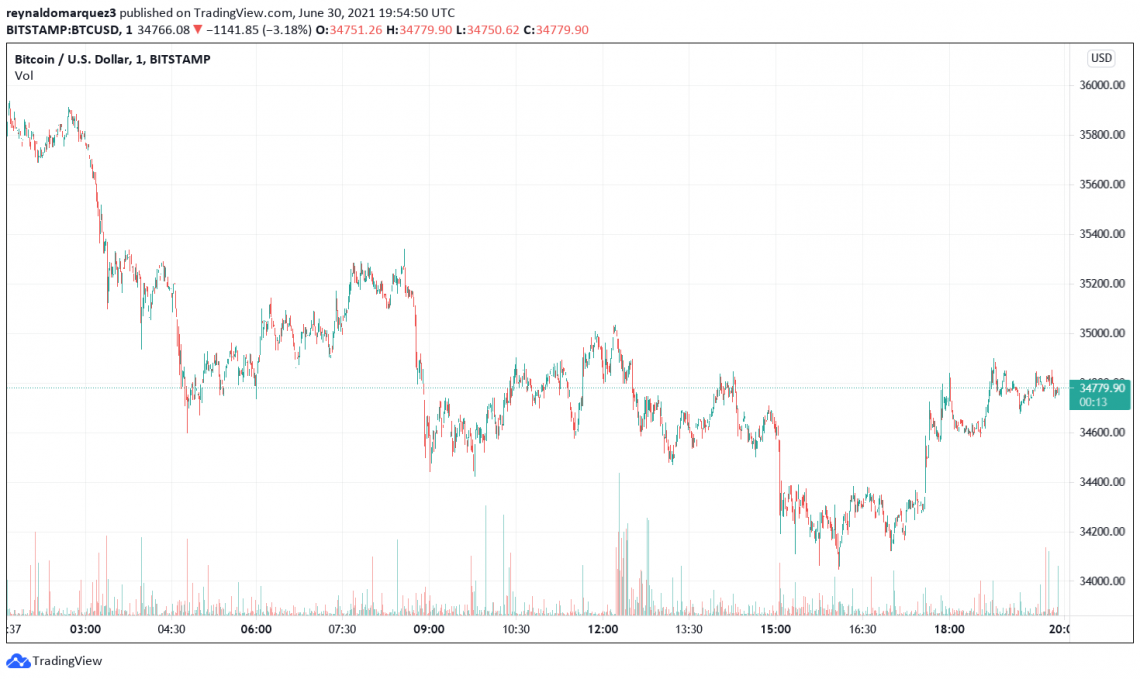Are Bitcoin and Lottery Similar?
Why This U.S. Congressman Compared Bitcoin Investment With Playing The Lottery
By Reynaldo Marquez – June 30, 2021 in Bitcoin Reading Time: 2 min read

The U.S. Congress Oversight and Investigations Subcommittee held a hybrid hearing on Bitcoin and cryptocurrencies. The institution summoned Alexis Goldstein, Director of Financial Policy for the Open Market Institute, Sarah Hammer, Managing Director at the Stevens Center for Innovation in Finance, Peter Van Valkenburgh, Director of Research at Coin Center, and others.
Adam Cochran, a partner at Cinneamhain Ventures, made a detailed summary of the event. The members of the Committee made their opening statements with Congressman Tom Emmer defending Bitcoin and the potential of blockchain technology to create more trust and transparency in traditional systems.
Similarly, Emmer criticized the lacked clarity on regulation and the danger of U.S. companies leaving to other territories consequently. The representative called for answers on a key topic: the classification of digital assets and whether they will be treated as securities, commodities, or currencies.
However, not every member of the Committee was an advocate of Bitcoin. Representative Brad Sherman claimed that “he would rather people make ‘bets’ in equity markets or the California lottery” than invest in BTC or cryptocurrencies. He added:
(…) the only advantage of crypto is avoiding KYC and its supported by anarchists for tax evasion.
Representative Anthony Gonzalez seemed to support cryptocurrencies and encouraged everyone to listen to the opinions of all the members in the Committee and not just the hostiles ones. He classified the idea of investing in the California lottery over Bitcoin as “ridiculous”.
Does Bitcoin Need New Regulations?
Amongst the speakers, Valkenburgh’s presentation highlighted the importance of Bitcoin as a tool that aids different human rights causes around the world. He cited the Nigerian Feminist Coalition in Nigeria to demonstrate the power of receiving money with a censorship resistance network anywhere in the world.
Valkenburgh believes there is sufficient regulation in the crypto industry. His argument had two main points: over the past 10 years, several federal and local governments issued their own legislation towards this new asset class. He added that technologies within the blockchain are a type of regulation.
(…) onramps, offramps and exchanges, are money transmitters, banks and trusts, and are all under the BSA, report to FINRA and require KYC/AML.
In BTC’s decade of existence, there have been no reports of a U.S.-based exchange that has suffered major losses. Regulators in this country have swiftly punished fraud, money launders, and other crimes related to the industry.
Valkenburgh thinks that central bank digital currencies (CBDCs) from China and other “totalitarian governments” will launch in the coming years. Thus, he called on the U.S. Congress to accept financial inclusion or “cede” the influence of these governments. Representative Warren Davidson agreed.
At the time of writing, BTC trades at $34,856 with losses in the lower timeframes. The first cryptocurrency by market cap has experienced a downtrend in the past days and could face further unless it makes a significant push towards former highs.

BTC moving sideways in lower timeframes. Source: BTCUSD Tradingview
The original article was written Reynaldo Marquez and posted on NewsBTC.com.
Article reposted on Markethive by Jeffrey Sloe




